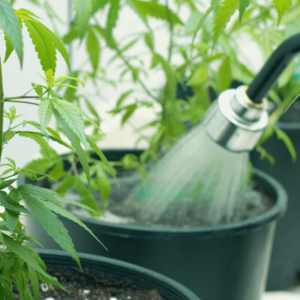Running an organic commercial farm may be a difficult task to manage, since it takes a lot of effort. Remember, the core principle of organic commercial farms is being free of chemicals, which means the fertilizers and pesticides you use should be natural. This ensures crops are safe from any chemical residue, which may have harmful effects when prepared for consumption.
With many people going green, this also means there are now many more options for organic fertilizers—some sold in stores, and others you can do it yourself. With organic fertilizers, you could enhance your soil’s quality and improve its pH quality, without depending on any chemicals. So, here are a few organic fertilizers that you could use for your commercial farm:
Organic Water Or Liquid Fertilizer

Liquid fertilizer is great for commercial farms, as it’s water soluble and is also easier to apply on a larger scale. There are many ways you can create your own liquid fertilizers with some waste you have at home or organic waste you collect from other sources and households. Many households practice segregation where household waste is separated, so you can always have collection scheduled for your household waste. Here are some household waste you can turn into the best water for growing cannabis and other crops:
- Banana Peels: These are rich in potassium, making it great for fruit plants and flowers.
- Vegetable Cooking Water: After boiling vegetables, don’t throw the water away since it is rich in nutrients leached from the vegetables, which can be a good liquid fertilizer.
- Weed Tea: After removing weeds from your farm, you can make use of those cuttings again and turn it into fertilizer. Place the clippings in a 5-gallon water bottle and add water. The water level should only be slightly higher than the grass clippings. Cover it up and leave it to sit for three days. Drain the liquid to remove the grass, and then dilute the solution to a 1:10 ratio. You can then use the liquid to water the plants.
Composting

You can also reduce the impact of your household waste to the landfills by starting a compost pit with all the biodegradable waste collected. Likewise, you can also start your own compost pit or buy ready composted fertilizers, if there are sources in your local area. If you’re going to start your own, however, just be sure that you use sustainable materials.
To help you out, here are some insightful composting practices you should remember:
- Choose The Right Composter: You should be more conscientious about your choices, especially since you’re growing a commercial farm. Two great options you can have are continuous composters made out of kitchen scraps and yard waste and indoor composters from composting kitchen scraps with the help of earthworms.
- Layer Your Greens And Browns: This means alternating plant trimmings (green) with carbon-rich materials (brown) to come up with a high-nutrient compost. To come up with this result, you can continue feeding your compost with fruit and vegetable peelings; coffee grounds and tea leaves; grass clippings, straw, or hay; and fecal matter from your grass-eating pets.
Composting is great for your organic farm, since it can help your soil improve water retention, and also ensures slow release of nutrients.
Bonemeal
Bonemeal is an animal-based fertilizer made from crushed animal bones. You need to have a crusher in your farm for this purpose, and you have to make sure the bones are crushed as finely as possible. These are great as organic fertilizers because bonemeal is rich in phosphorus, calcium, and may also have traces of nitrogen. Furthermore, these compounds also promote better plant and seedling growth. Maximizing even your bone waste allows you to reduce your kitchen waste, whether biodegradable food waste or plastic waste.
Animal Manure

Animal manure already has a long history as fertilizer for crops. Manure could come from any animal such as cow, chicken, or goat. You can maximize the animals you have in your farm by making good use of their waste, the manure can be repurposed and collected to be used as fertilizer. When you’re using manure, however, be sure you’ve already given at least six months to age.
Conclusion
Once you start an organic farm, a key challenge would be to enhance your soil naturally. More often than not, organic and natural fertilizers may also be cheaper than chemical ones. Your commercial farm can come up with healthier farm produce and a more sustainable practice by using any of the organic fertilizers discussed above.

